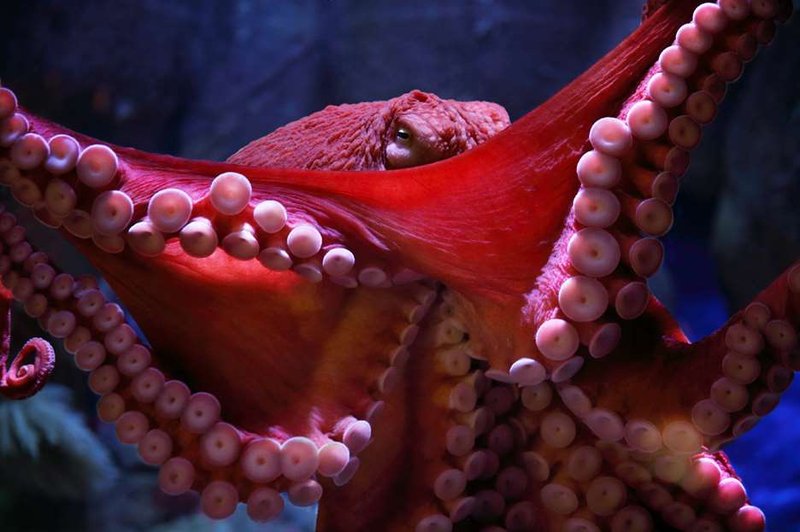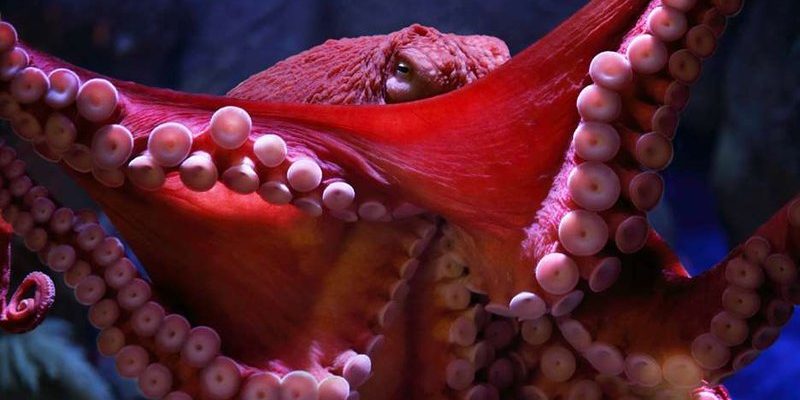
The Giant Pacific Octopus, known scientifically as *Enteroctopus dofleini*, is a master of disguise and survival. They live in the chilly waters of the Pacific Ocean, but warming waters are altering their habitat. Just like how a warm summer day can make you feel sluggish, rising ocean temperatures can affect these octopuses’ metabolism and behaviors in profound ways. So, let’s dive deeper into how climate change is impacting these marvelous creatures.
Temperature Changes and Their Effects
One of the most immediate effects of climate change is rising ocean temperatures. The Giant Pacific Octopus is adapted to thrive in cooler waters, usually between 50°F and 60°F. However, when temperatures rise, their bodies have to work harder to survive. This stress can cause them to become less active, affecting their ability to hunt for food.
Here’s the thing: when the water gets too warm, it can also disrupt their breeding patterns. Female octopuses typically lay thousands of eggs, and if the surrounding water isn’t just right, those eggs may not survive. A warmer environment could lead to fewer baby octopuses, which directly impacts the population.
You might wonder how this affects the ecosystem as a whole. Well, the Giant Pacific Octopus plays a key role in its habitat, controlling the populations of various prey species. If they decline, it can throw off the balance of the local marine ecosystem, leading to unpredictable consequences.
Oxygen Levels and Their Impact
Climate change doesn’t just heat up the oceans; it can also reduce oxygen levels in the water. This process, known as deoxygenation, is particularly troubling for marine life, including our octopus friends.
The Giant Pacific Octopus relies on oxygen in the water to breathe and function properly. Lower oxygen levels make it harder for them to thrive. Think of it like trying to run a race while holding your breath—eventually, you’re going to slow down. This decrease in oxygen not only affects octopuses but also impacts their prey, leading to potential food shortages.
During times of low oxygen, octopuses might also retreat into deeper waters where conditions are better, leaving them more vulnerable to predators. This shift can lead to increased competition for resources, creating tension in the ocean community.
Ocean Acidification and Its Consequences
Another serious issue tied to climate change is ocean acidification. As carbon dioxide levels rise in the atmosphere, more CO2 gets absorbed by the ocean, lowering its pH and making it more acidic. This change can have dire consequences for many marine organisms, especially those with shells, like snails and certain fish.
For the Giant Pacific Octopus, the effects are subtle but significant. As their prey species struggle to survive in more acidic waters, the octopuses face challenges finding enough food. Imagine if your favorite grocery store stopped stocking your favorite snacks; it would make meal prep a lot trickier!
Additionally, ocean acidification can weaken the overall health of marine ecosystems. Coral reefs, which serve as vital habitats for many species, are particularly vulnerable. Without a healthy reef system, food sources for octopuses and many other ocean creatures diminish, leading to further population declines.
Impact on Behavior and Intelligence
The Giant Pacific Octopus is known for its remarkable intelligence and problem-solving abilities. But much like us, environmental stresses can affect behavior. Changes in temperature, food supply, and habitat can lead to stress, which might impair their cognitive functions.
You might be curious about how stress manifests in these creatures. Some studies have shown that under stress, octopuses might become less curious about their environment and less willing to explore. Imagine if you felt anxious about a big test; you might avoid studying new material. Similarly, an octopus under stress may not hunt as effectively, leading to poorer health and survival rates.
This altered behavior can have a ripple effect on the ecosystem. If octopuses are less active hunters, their prey populations could explode, leading to imbalances and potentially harmful algal blooms. It’s a classic case of how one problem can lead to others, creating a chain reaction in the ocean.
Human Interaction and Conservation Efforts
As climate change continues to impact the Giant Pacific Octopus, human actions play a crucial role in conservation. Overfishing, pollution, and habitat destruction compound the challenges these octopuses face. Protecting their environment is essential for their survival.
Marine protected areas (MPAs) are one way to help. By restricting fishing and protecting habitats, MPAs can create safe havens for octopuses and other marine life. It’s similar to creating a nature reserve on land, where wildlife can thrive without interference.
Additionally, raising awareness about the importance of reducing carbon footprints can make a difference. Supporting sustainable seafood practices and advocating for policies that combat climate change can help safeguard these incredible creatures and their habitats.
The Future of the Giant Pacific Octopus
Looking ahead, the fate of the Giant Pacific Octopus hinges on our collective actions. Climate change is a daunting challenge, but it’s not insurmountable. With concerted efforts to reduce emissions and protect marine environments, there’s hope for a healthier ocean.
Future research into the adaptability of octopuses may also shed light on how they can withstand these changes. Scientists are studying how these creatures might adapt to rising temperatures and acidification. The more we understand, the better equipped we are to help them survive.
In the end, the Giant Pacific Octopus serves as a crucial reminder of the delicate balance of marine ecosystems. By protecting them, we’re not just safeguarding one species, but countless others that rely on them. Let’s gear up to be good stewards of the ocean, ensuring that future generations can marvel at these unique and intelligent creatures.
As we wrap up this discussion, remember that everything is interconnected. The next time you think of the ocean, consider the Giant Pacific Octopus and the many threats it faces from climate change. You might find that the more you learn, the more you care—about octopuses, about oceans, and about our planet.

